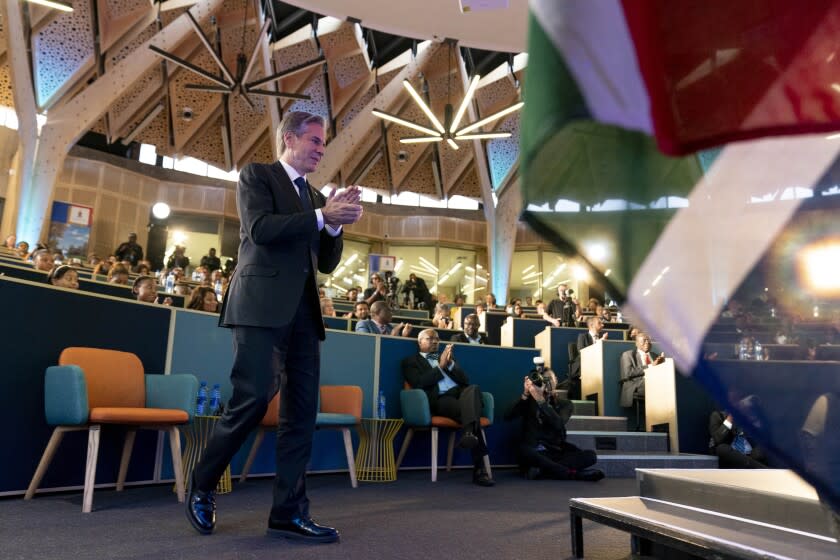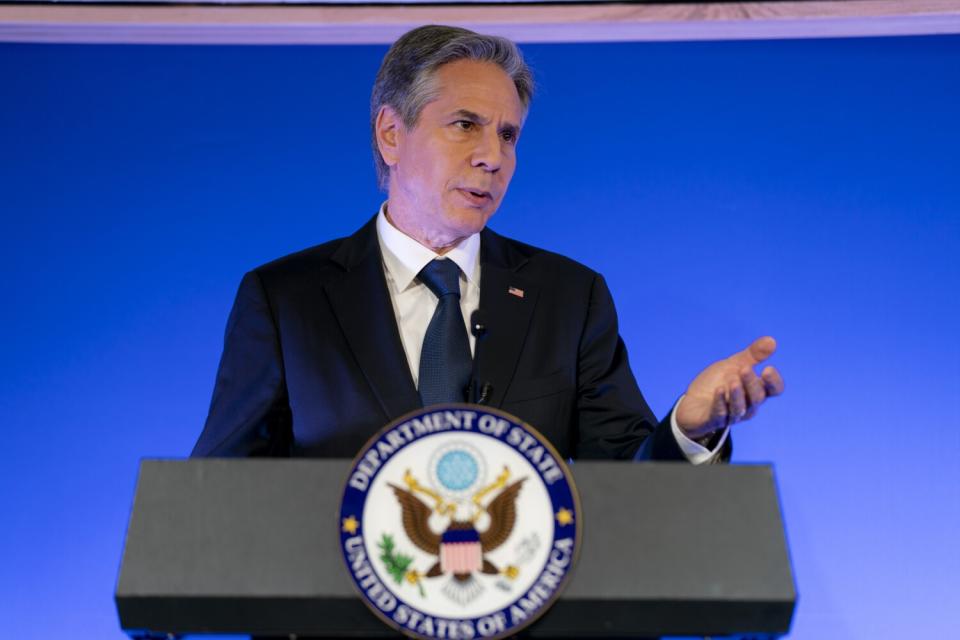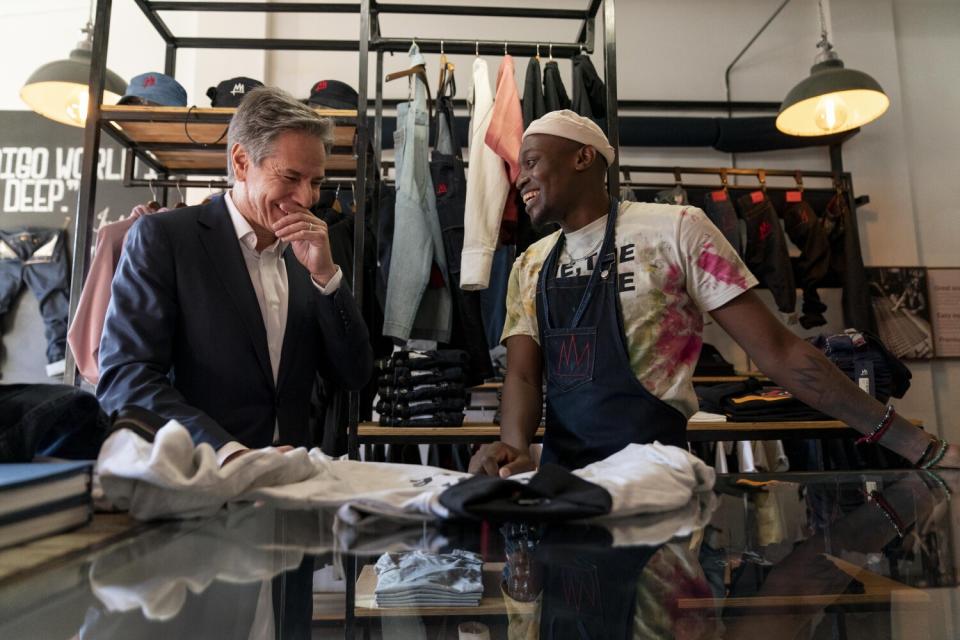Biden administration launches Africa strategy. But the real targets seem to be China, Russia

- Oops!Something went wrong.Please try again later.
With Russia and China looming in the background, America’s top diplomat pitched a “new chapter” in U.S.-African relations on Monday, promising robust trade and calling for democracy despite political upheaval in much of the continent.
Secretary of State Antony J. Blinken insisted his five-day swing through sub-Saharan Africa is aimed at making the region a priority for the administration in a dynamic of “equal partners.”
But Blinken made no secret of his condemnation of Moscow and Beijing and what he said was their exploitation of African countries and resources.
“We’ve seen the consequences when international infrastructure deals are corrupt and coercive; when they’re poorly built or environmentally destructive; when they import or abuse workers or burden countries with crushing debts,” Blinken said, alluding to what Washington officials regard as predatory lending practices, particularly by China.
“That’s why it’s so important for countries to have choices,” he added.

The Biden administration has been disappointed that South Africa and its neighbors have not joined the U.S.-led effort to isolate Russia over its invasion of Ukraine nearly six months ago. Blinken's trip to South Africa Monday, to be followed by the Democratic Republic of Congo and Rwanda later in the week, is taking place in the shadow of his Russian counterpart, Sergei Lavrov, who has also been crisscrossing the continent, reportedly with arms deals on offer.
If Blinken had hoped he could persuade the South African government to get on board in punishing Russia, he was mistaken.
He received a receptive welcome — to a point.
Blinken’s host, South African Foreign Minister Naledi Pandor, said countries should not have to choose sides between the West on one hand, and Russia and China on the other.
“I hate being told, 'Either you choose this, or else,'” she said at a joint news conference with Blinken. “We cannot be a party to a conflict between China and the U.S.”
As for Russia, Pandor said, South Africa’s position is to urge the United Nations to resolve the conflict with Ukraine through diplomacy, not sanctions.
Pandor, a formidable woman with a commanding voice, was not finished. Asked about inconsistencies in U.S. foreign policy, she likened Ukraine to what she called “Palestine,” and emphasized that Palestinians deserve a homeland as much as Ukrainians. She said South Africans had authority to speak about the matter “having experienced apartheid ourselves," referring to the white-minority rule that oppressed black South Africans for decades.
Some human rights advocates have likened the Israeli occupation of the West Bank and Gaza Strip to a form of apartheid. Israel firmly rejects the characterization, as does the U.S. government.

Blinken has kept a full-court press in Africa. He said he was accompanied by 50 U.S. officials — in recent weeks, numerous senior officials from the State Department, the U.S. Agency for International Development, the U.S. mission to the United Nations and others have paid visits to numerous African countries.
Blinken launched the U.S. Strategy for Sub-Saharan Africa in a series of documents followed by a speech at the University of Pretoria. The main points include human rights and democracy; fighting terrorism and ending armed conflict; pandemic recovery; hunger and climate change.
Blinken warned that 193 million people worldwide face famine — primarily in Africa — and another 40 million could be in a similar predicament, according to the World Bank. Russia’s blockade of Ukraine’s Black Sea ports has led to scarcities in grain, cooking oil and fertilizer.
“The U.S. is there for African countries in this unprecedented crisis, because that’s what partners do for each other,” Blinken said. “The United States will not dictate Africa’s choices, and neither should anyone else. The right to make these choices belongs to Africans, and Africans alone.”
Still, the growing clout of China and Russia on the continent has been a principal motivating factor behind the U.S. strategy.
Seven coups and attempted coups in the last two years have felled or threatened African governments, and some foreign policy experts blame China.
Blinken also cited the Kremlin-backed Wagner Group, a network of mercenaries that has shown up in countries including Mali, where he said it “exploits instability to pillage resources" and commits widespread atrocities, according to human rights organizations.
Joseph Sany, a veteran peace and governance expert originally from Cameroon, said he welcomed a new tone in the Biden administration’s approach toward Africa, but said the U.S. has lost a lot of ground. Numerous U.S. embassies in the region, for example, are not fully staffed. In particular, China is a powerful adversary, he said.
“China is beating us,” said Sany, vice president of the Africa Center at the U.S. Institute for Peace. “Their diplomats are on the ground, engaged all the time. You cannot Zoom [call] your way into these relationships.”
Russia has less influence but is deadly, he said.
“What Russia has is the ability to disrupt in unstable countries,” Sany said. “It’s vulture diplomacy. When a country is bleeding, [Russia] comes along with paramilitary groups. They are disruptive actors. But keep an eye on China. The strategic competition is with China.”
This story originally appeared in Los Angeles Times.

